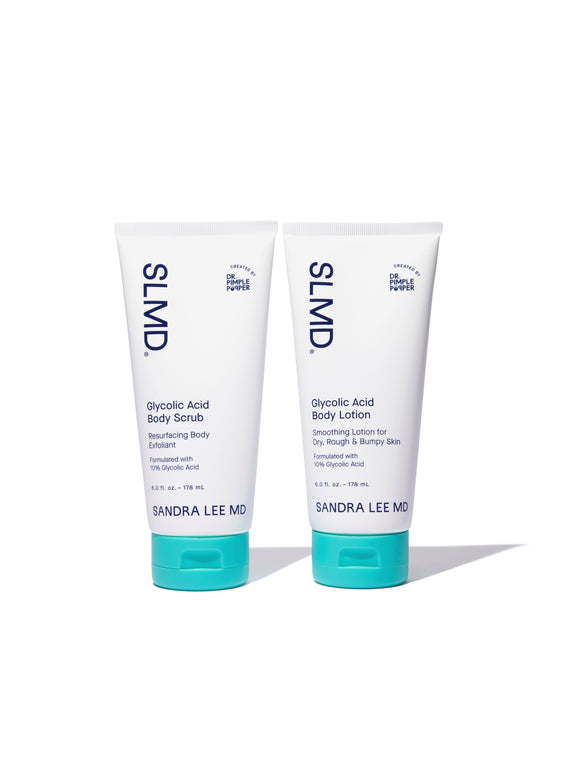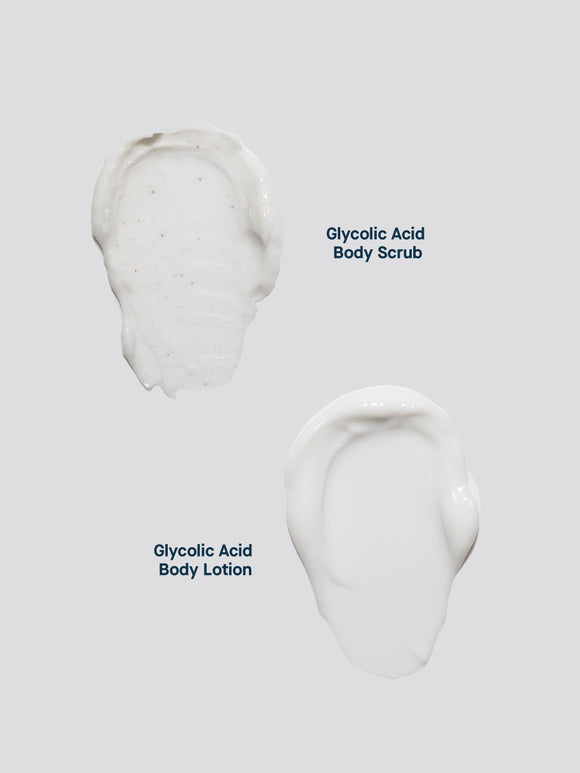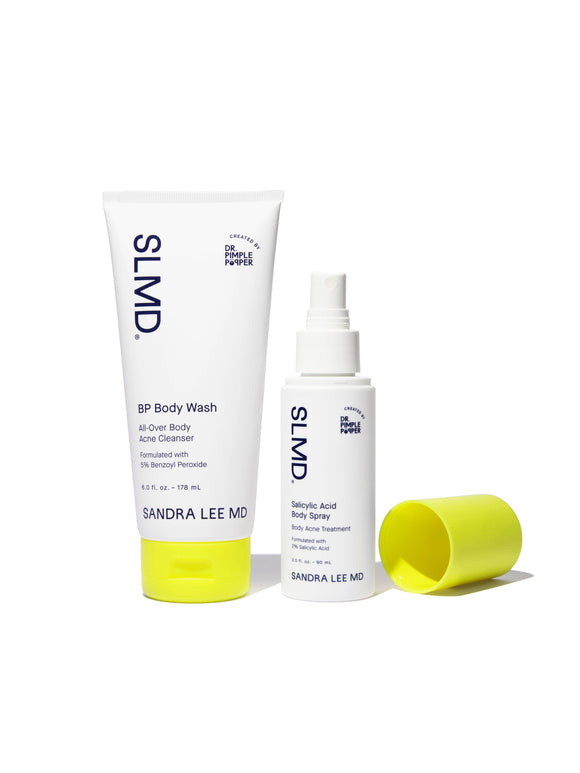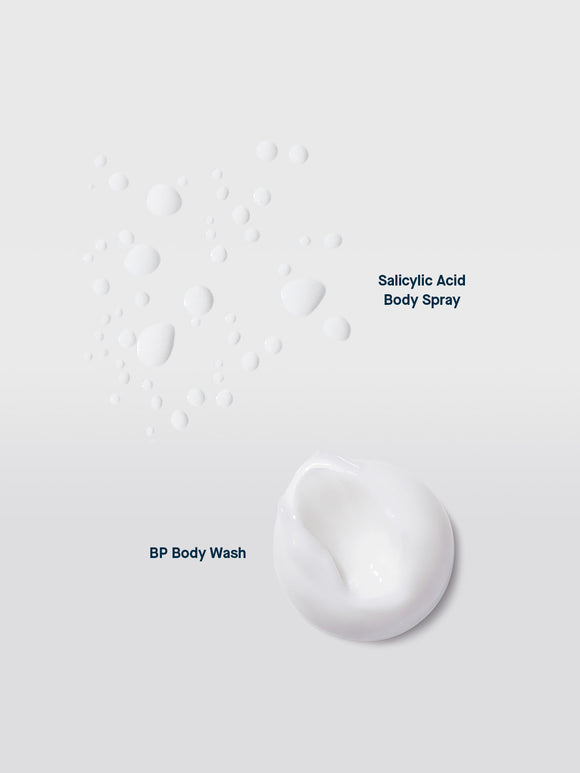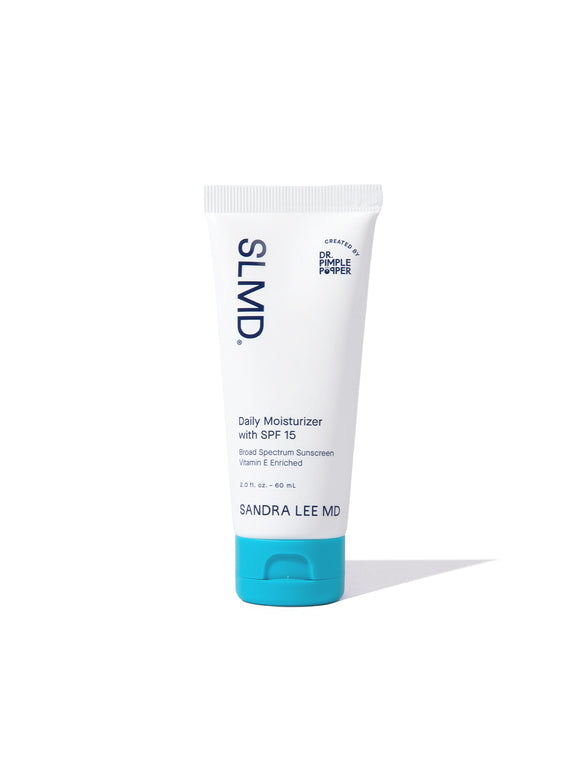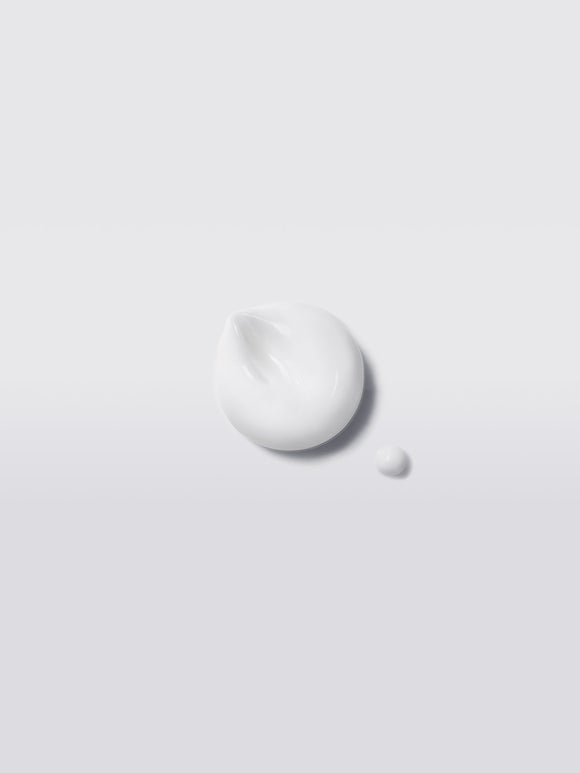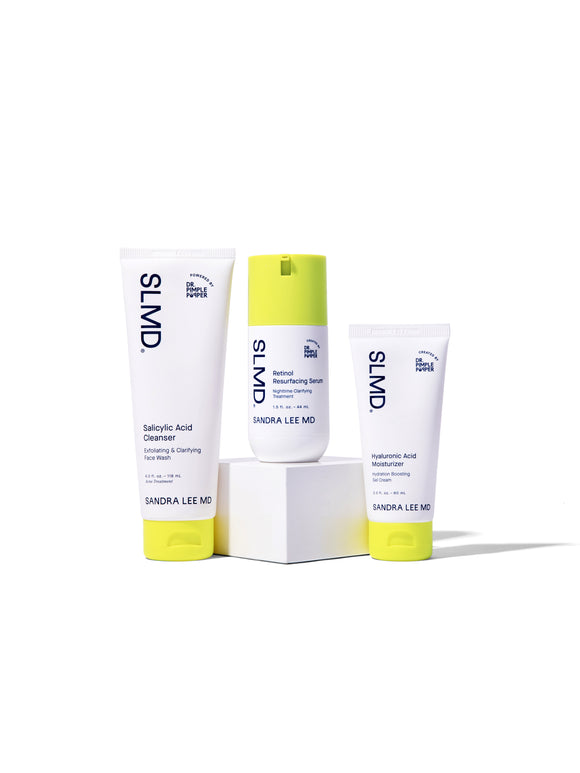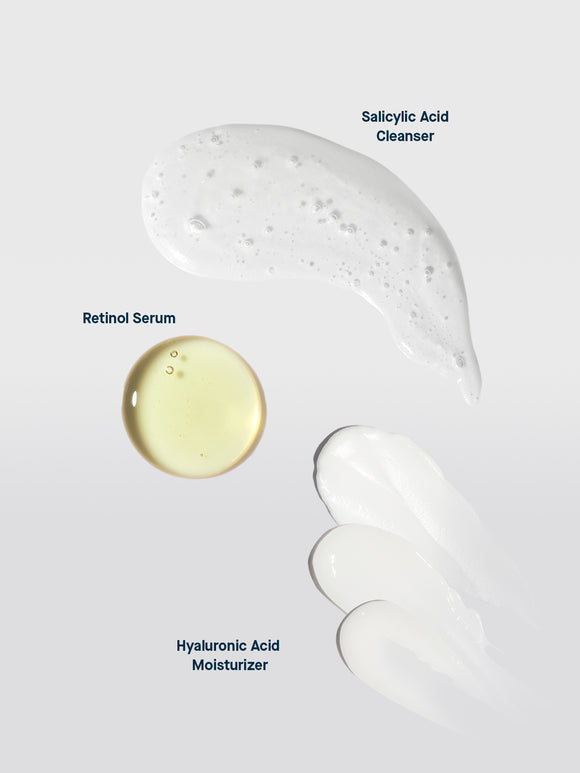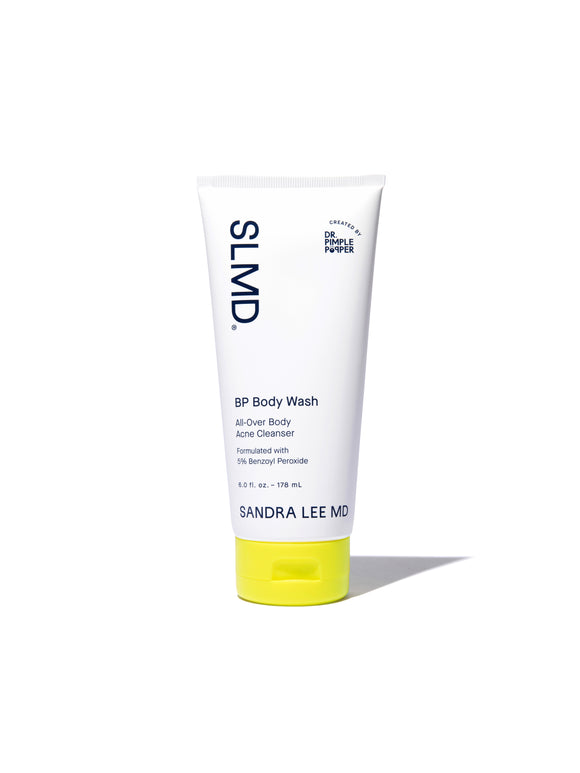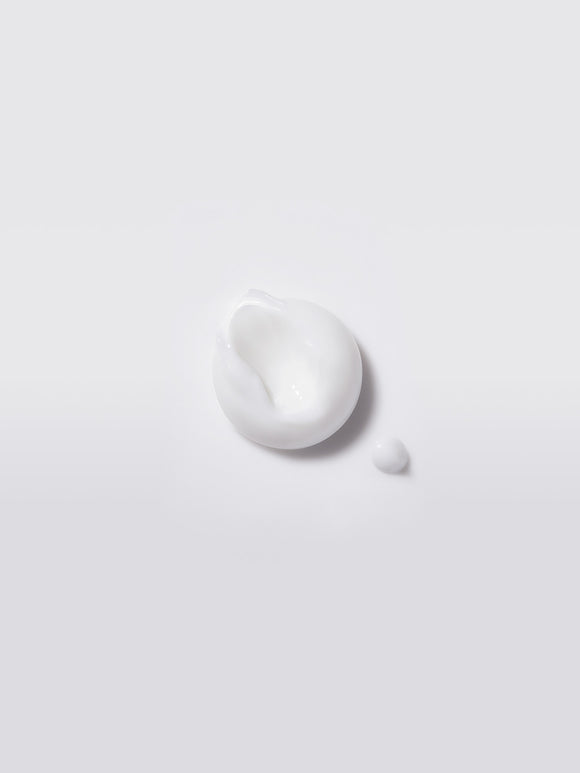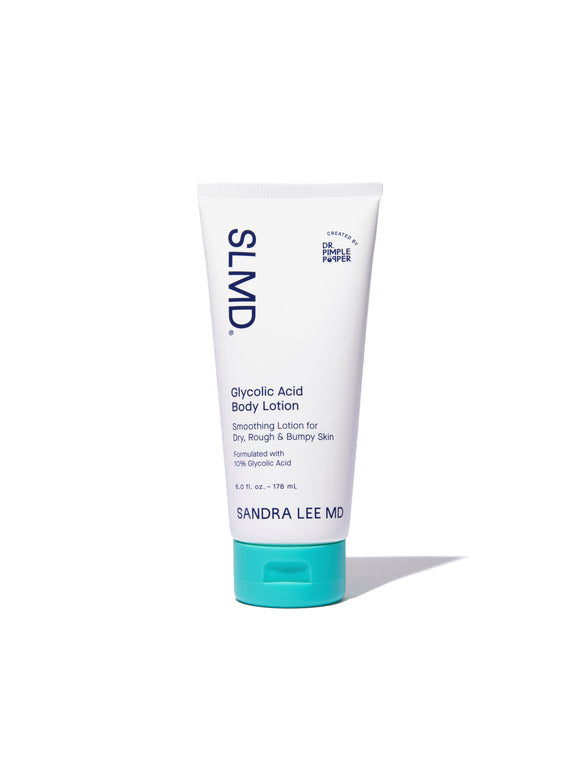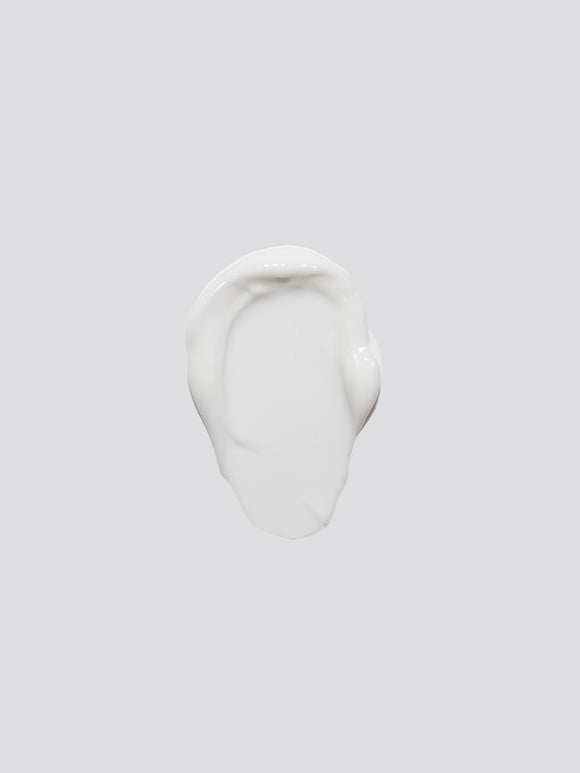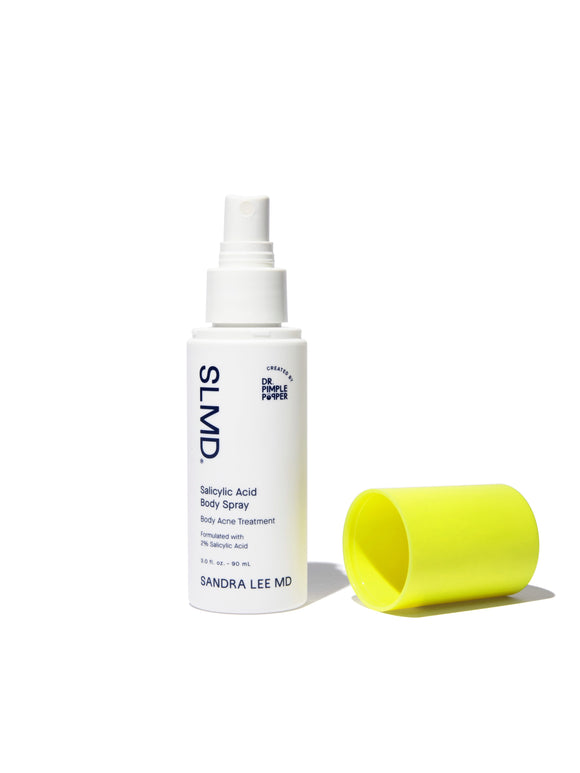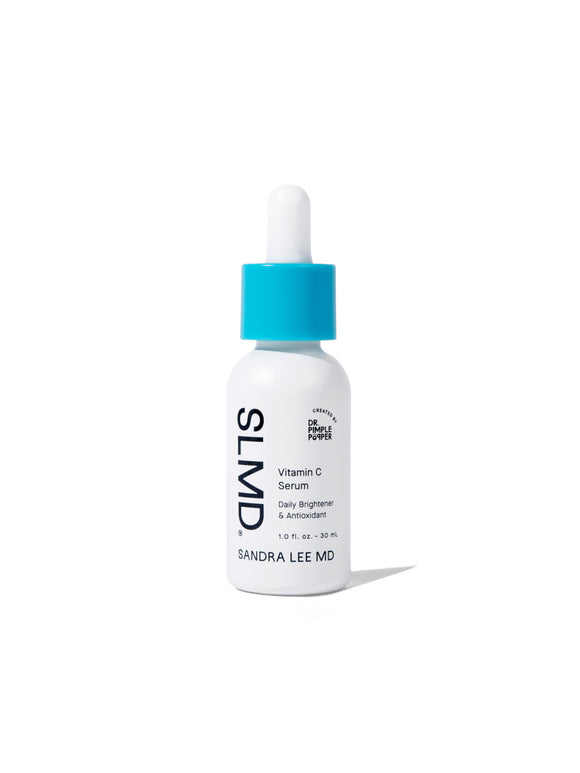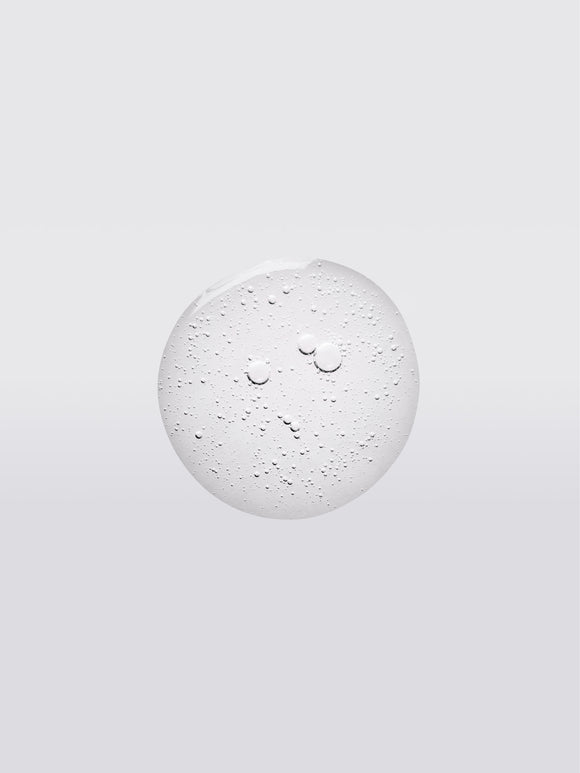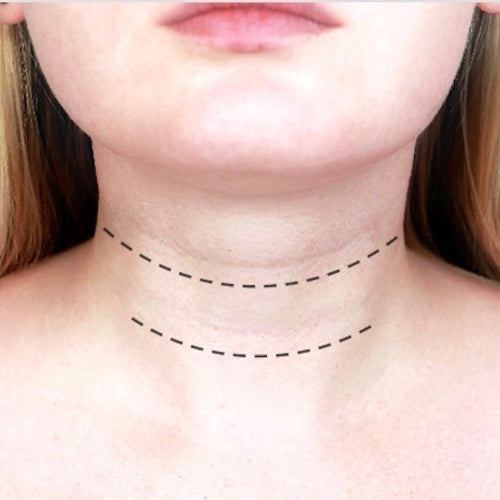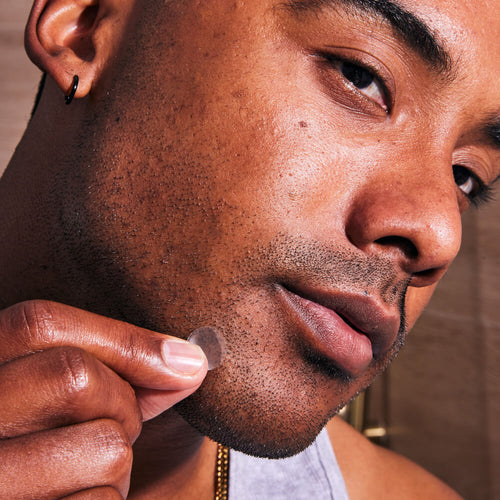
Face Skin vs. Body Skin: Key Differences and Skincare Tips
Dr. Pimple Popper explains why your face and body need different skincare — and how to choose the right products.
Published:
5 minute read
Have you ever wondered why your facial cleanser or moisturizer is separate from your body lotion? According to dermatologists, these aren’t just clever marketing tactics. There are real biological differences between the skin on your face and the skin on your body, and understanding them can help you make more informed skincare choices. Let’s take a closer look at these unique characteristics and why they require specialized care.
Article Quick Links
Key differences between face and body skin
Facial skin and body skin may share the same genes, but they’re more like siblings than identical twins. Here’s an in-depth look at how each area of skin differs in structure, thickness, and function.
Epidermal layer (outer layer)
- Thinner stratum corneum on the face: The stratum corneum (aka the skin barrier), the outermost layer of the epidermis, is thinner on the face than on the body. This makes facial skin more delicate and permeable to products but also more vulnerable to irritation.
- Faster cell turnover in facial skin: Skin cells on the face renew more quickly than body skin cells, giving facial skin a smoother and often more radiant appearance.
- Higher trans-epidermal water loss (TEWL): Facial skin experiences more moisture loss than body skin, which means it needs more regular hydration.
Dermal layer (support layer)
- More oil glands on the face: Facial skin has a higher density of sebaceous (oil) glands, especially in the T-zone, which helps keep skin naturally moisturized but also makes it more prone to acne.
- Thicker dermis in certain body areas: The dermis, or supportive middle layer, is thicker in body areas like the back and thighs, which helps protect against friction and pressure but makes it harder for products to penetrate.
Key takeaway: Facial skin is thinner, renews faster, and is more prone to moisture loss, making it more delicate and permeable than body skin.
How face and body skin impact skincare needs
Understanding these differences between facial and body skin helps explain why each area benefits from products specifically formulated for its unique needs.
Acne treatment
Thinner, more permeable facial skin is susceptible to acne but requires gentler treatments to avoid irritation. The thicker, resilient body skin can handle stronger active ingredients like benzoyl peroxide or salicylic acid, especially when treating body acne.
Moisturization needs
Due to higher TEWL and oil gland density, facial skin benefits from lightweight, non-comedogenic moisturizers. Body skin, which tends to be drier and less oily, often needs thicker creams or lotions that lock in moisture.
Anti-aging and environmental protection
Facial skin is frequently exposed to the environment, making antioxidants, SPF, and retinoids critical to protecting it from UV damage and pollution. Body skin benefits from sun protection and occasional exfoliation but doesn’t need as many anti-aging products.
Key takeaway: Facial skin’s thinner structure and higher oil production require gentler, lightweight skincare, while body skin can handle thicker, more protective products.
Dr. Pimple Popper's Top Face & Body Picks
Skincare recommendations for face and body
With these differences in mind, here are some expert skincare recommendations tailored to the unique characteristics of facial and body skin.
For the face
- Acne-prone skin: Use a gentle, pH-balanced cleanser with active ingredients like salicylic acid. Lightweight, non-comedogenic moisturizers help manage oil without clogging pores. Try: SLMD Salicylic Acid Cleanser
- Dry or sensitive skin: Hydrating serums containing hyaluronic acid or squalane provide moisture without causing irritation. Avoid strong fragrances or heavy creams that might clog pores. Try: SLMD Hyaluronic Acid Serum
- Aging skin: Antioxidants like vitamin C and daily broad-spectrum SPF protect against environmental damage. Retinoids support skin renewal to reduce fine lines and maintain youthful skin. Try: SLMD Vitamin C Serum, Retinol Resurfacing Serum, Daily Moisturizer with SPF 15
For the body
- Body acne: Body washes and treatments with higher concentrations of active ingredients, like benzoyl peroxide and salicylic acid, help manage body acne and improve skin texture. Try: SLMD Body Acne System
- KP, dry or rough skin: Thicker creams or lotions containing emollients, humectants, and exfoliating acids (like glycolic acid) help lock in moisture and smooth rough patches, especially on the elbows, knees, and feet. Try: SLMD Body Smoothing System
- Sun protection: For exposed areas, use sunscreen daily, especially during prolonged sun exposure. Sprays or lotions that are easy to apply encourage consistent use on larger areas.
Key takeaway: Tailor your routine with specialized products: gentler, lightweight formulas for the face and stronger, more emollient options for the body.
When to consult a dermatologist
If you experience persistent skin concerns—such as severe body acne, chronic dryness, or irritation that doesn’t improve with over-the-counter products—it’s best to consult a dermatologist. They can provide guidance and prescribe treatments tailored to your skin’s specific needs.
Key takeaway: For unresolved or chronic skin issues, talking to a dermatologist can help identify solutions tailored to both facial and body skin needs.
Dr. Pimple Popper answers your face vs. body skin FAQ
Q: Can I use my facial cleanser on my body?
A: Yes, you can, and it may even help on sensitive or acne-prone areas. However, facial cleansers are typically formulated to be gentle and may not be as effective on thicker body skin, especially if you're trying to treat body acne or rough patches.
Q: Are body acne treatments safe to use on facial acne?
A: Generally, it’s best to avoid using body acne treatments on the face. Body products often contain higher concentrations of active ingredients that can be too harsh for facial skin, potentially causing irritation or dryness.
Q: What’s the difference between facial moisturizers and body lotions?
A: Facial moisturizers are designed to be lightweight and non-comedogenic to avoid clogging pores, while body lotions are typically thicker and more emollient to lock in moisture on areas prone to dryness, like the legs and arms.
Q: Can I use exfoliating body products on my face?
A: Exfoliating body products, especially those with strong acids or physical exfoliants, can be too abrasive for facial skin. If you’re looking to exfoliate your face, opt for products specifically designed for facial use to avoid irritation.

Dr. Lee's Last Word
Facial and body skin are structurally different, which means they require different care approaches. Using products formulated for each area can help you maintain healthy, balanced skin. And if you’re dealing with ongoing skin issues, remember that a dermatologist can offer you more personalized solutions.





